Usually a loose fitting, wide-sleeved shirt is worn with straight dance clothes, although I've witnessed on more than one occasion, straight dancers in traditional Comanche style clothes, without a shirt.
Derived from shirts worn by early Europeans in the early 19th century, Ponca, Omaha, Pawnee and Osage straight dancers would usually wear solid colored material in cotton, satin or taffeta.
Later, a contrasting solid color ribbon was added to the “store-bought” style as decorative trim and the ribbon trim often matched the color of the neckerchief and shoulder scarves.
Today, long-sleeved ribbonshirts are made from a variety of materials and prints, often with multiple ribbon trim, with the experienced dancer having a ribbonshirt made with colors that “look good” in contrast with the color theme in the rest of the outfit.
Traditionally, both Ponca and Osage straight dancers, when wearing beaded breechcloth aprons which were actually more predominant among the Ponca, wore their shirts tucked inside the breechcloth aprons so that the beadwork on the aprons would not be covered. (Henry Snake, Ponca, 1977) and (Howard, 1965, p. 64)
[ad#Adsense 468]
When wearing breechcloth aprons with ribbon appliqué decoration on the other hand, more predominant among the Osage, the ribbonshirts are worn over the tops of the breechcloth aprons.
In either style, the bottom edge of the ribbonshirt usually comes to the dancer’s mid-thigh. “Occasionally, a few Ponca straight dancers omit the shirt and wear instead a blue broadcloth vest decorated with stylized floral beaded designs.” (Howard, 1965, p. 64)
Some examples of ribbonshirts of the past.
Bear Iowa 1869
Omaha men – 1875
Hairy Grizzly Bear – Ponca – 1877
Osage man – no date
Prairie Turtle – Otoe – 1894
Frank Corndropper and Paul Buffalo – Osage – 1895
Sun Chief – Pawnee – no date
Hard Thinker – Sauk & Fox – 1896
Roaming Chief – Pawnee – 1902
Otoe men – 1906
John Wood – Osage – 1910
Generous – Osage – 1913
Bailey, Garrick, and Daniel Swan.
2004. Art of the Osage. St. Louis Art Museum, University of Washington Press, Seattle, WA.
Callahan, Alice A.
1990. The Osage Ceremonial Dance, I’n-Lon-Schka. University of Oklahoma Press, Norman, OK.
Feder, Norman.
1957-a. Costume of the Oklahoma Straight Dancer. The American Indian Hobbyist Newsletter, Vol. 4, No. 1.
1957-b. Costume of the Oklahoma Straight Dancer. The American Indian Hobbyist Newsletter, Vol. 4, No. 2.
Hail, Barbara N.
1980. Hau, Kola!: The Plains Indian Collection of the Haffenreffer Museum of Anthropology. Brown University, Bristol, RI.
Howard, Dr. James H.
1965. The Ponca Tribe. Bureau of American Ethnology, Bulletin 195, Smithsonian Institution, U.S. Government Printing Office, Washington, D.C.
1976. Ceremonial Dress of the Delaware Man. Special Issue, The Bulletin of the Archeological Society of New Jersey, No. 33, Seton Hall University, South Orange, NJ.
LaFave, Edward J.
1998. Straight Dance Clothing: How to Dress a Straight Dancer. Whispering Wind: American Indian Past & Present Magazine, Vol. 29, No. 4, Folsom, LA.
Smith, Jerry.
1967. Straight Dance Shirt. The Singing Wire Newsletter, November Issue.
1982. Straight Dance Clothes: Getting Them On. Moccasin Tracks Magazine, April Issue, LaPalma, CA.
Stewart, Tyronne H.
1968. Dressing a Straight Dancer. The Singing Wire Newsletter, February Issue.
Last Updated on December 13, 2023 by Paul G
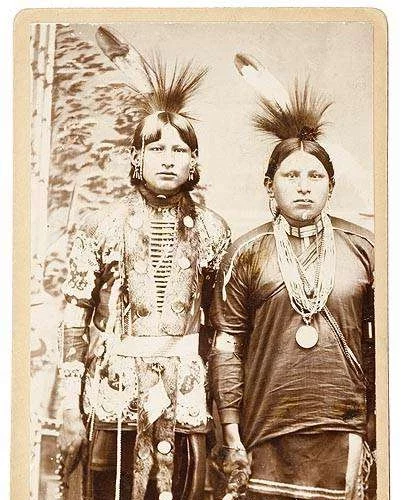












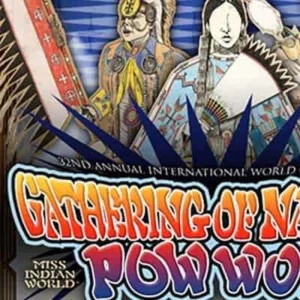
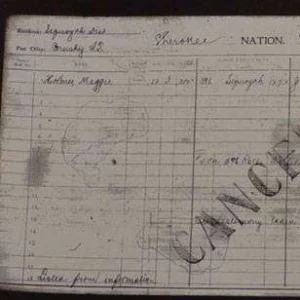
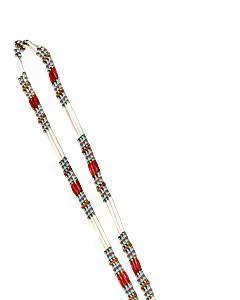
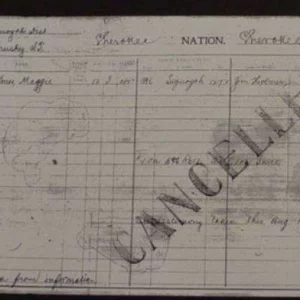
Thomas Yahnozha
says:I am trying to find patterns for my southern Straight dance outfit and I am trying to find buffalo hide for my moccasins
Julia Nava
says:The old Native photos always inspire me, I like to see how the regalia has evolved with the tribes. Thanks
Anthony Laudun
says:I love the photos. Keep them coming.
Honey Bear (Sylvia)
says:I love the photos too. My grandma is Native Indian but she call us,”1st Nation Native American Indian”, smiply because anyone born on America soil is Native American.She told me that they are the “First Nation Native Indian” I only have 2 Photos of her one when she was in her 20’s and the other when I was 2 yrs old,1966.She told me all kinds of stories about when she was little and all the hardship as she grew up.To all cherish all the photos and tells as my Nuli (grandma)would say.Enjoy life